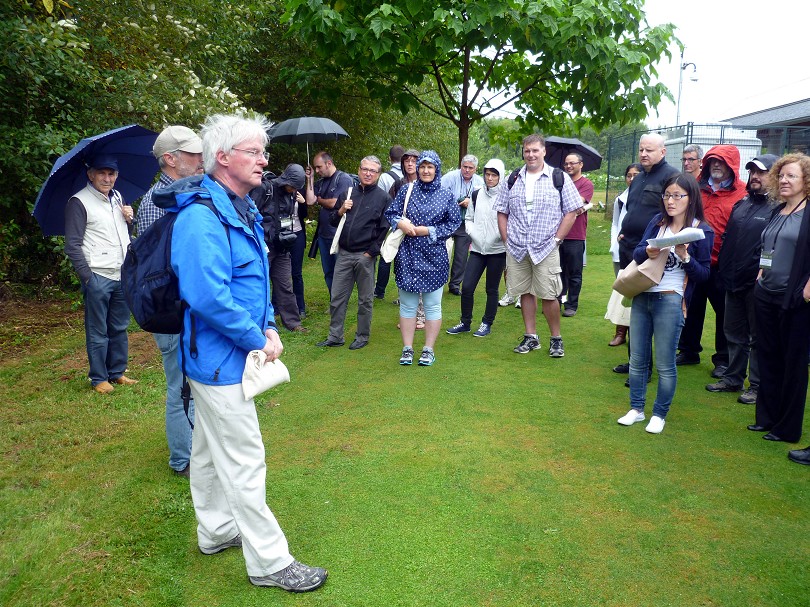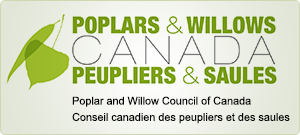Various initiatives in Canada have focused on researching the genetics of poplars and willows native to Canada, as well as species from elsewhere with which they can be hybridized. This knowledge may be used for improved effectiveness and efficiency of Tree Improvement (TI) programs focused on the development of fast-growing commercial plantations that provide wood and fibre products. Also, the knowledge is important, especially in native species, to understand their adaptation to their environments and how they may be affected by climate change or other environmental biotic or abiotic stresses (insects, diseases, weather events).
Because some poplar and willow species or their hybrids are easily propagated vegetatively, greater growth rates, better form or wood quality, increased resistance to diseases or insects or other desirable characteristics can be fixed through clonal selection or selected for in progeny through controlled breeding in TI programs. Clonal poplar or willows have been selected, named and registered by various organizations (federal or provincial governments or private industry). These can be seen in this website’s clonal database.
Canadian poplar genetics projects have involved native species P. trichocarpa, P.deltoides, P. balsamifera and P.tremuloides as well as non-natives P. nigra, P. xpetrowskiana and P. maximowiczii
Totem Field clonal archives at UBC
All PopCan Populus trichocarpa genotypes are represented in clonal archive stoolbeds at Totem Field at UBC. New branch cuttings were collected from the Totem Field PopCan Trial plantation in early 2015 to replace missing clones. A proposed plan is to include an archive stoolbed for the quarantined hybrid poplars currently growing in the growth chambers.
Rental costs for the clonal archive stoolbeds can be covered for three years by the allocated IPS VI surplus of $7,273 (the remaining balance) and the BC Government has expressed an interest to fund maintenance of this archive for an additional three years, ensuring the clonal archives a lifespan of five to six more years. The IPS VI-allocated funds will be managed by the UBC Department of Forest Sciences.
The BC Government further indicated an interest in establishing and maintaining a second clonal archive stoolbed on an existing BC Government research site near Saanich on southern Vancouver Island. Since the clonal archive stoolbeds at Totem Field are well outside the Septoria musiva quarantine area, transfer to southern Vancouver Island should not pose a problem. The search is on for another home to spread the risk, in case one of the designated sites becomes unavailable.
Totem Field PopCan - Black Cottonwood Trial at UBC.
 |
|
Rob Guy, UBC, addressing |
On Wednesday July 23rd 2014 which was the last day of the IPS VI Symposium at the University of British Columbia, participants had an opportunity to visit the UBC Totem Field where the PopCan P. trichocarpa plantation, in its seventh growing season, was located. Researchers collected pollen from 41 genotypes, which is now in storage. Cuttings were taken from several trees to replace genotypes missing from the clonal archive stoolbeds.
This seven-year-old plantation was originally scheduled to be removed in the spring of 2015; however, the UBC Faculty of Forestry decided to maintain the trial for at least one more year. This presents the opportunity to add to the pollen collection in 2016. Hopefully additional outside funding can be secured to extend the plantation`s life beyond 2016 in order to carry out marker-aided breeding. This would be a very valuable and logical next step for the PopCan project, since all genomes are now known.


